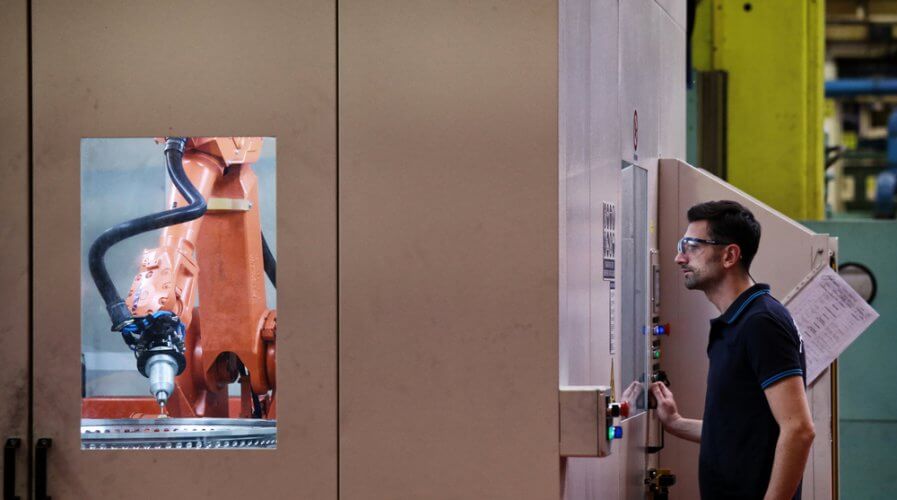
ML can scale improvement in manufacturing processes. Source: Shutterstock
Manufacturing processes can be further augmented with ML technology
MANUFACTURERS need to continuously be progressive and innovative as it is substantial for economic growth.
Not to mention, manufacturers also need to consistently deliver on the expectations of customers and stakeholders when it comes to the quality, accessibility, and availability of products.
This is why manufacturing processes have to be constantly improved and elevated to achieve higher efficiency, break down silos, and increase profitability.
One way to establish this is through the integration of data-driven solutions because the shop floor or manufacturing plants are the most data-filled environments, enabling the harnessing of insights and deployment of scalable solutions.
Machine learning (ML) is such a solution because of its analytics and predictive capabilities which can significantly impact the way manufacturing processes can be enhanced and accelerated.
Plenty of manufacturing companies have found success with ML solutions – reduced downtime, increased productivity, heightened quality, and accelerated production, proving that adding intelligence to machines makes manufacturing ‘smart’.
In fact, when it comes to smart manufacturing, it is predicted that the next three years will see a 65 percent adoption rate of big-data-driven processes and quality optimization technology.
The ways ML can be integrated and deployed in processes are infinite, but it is good to start small, with robots.
Robots are seen as collaborative partners of employees in factories as they help take over workloads that are routine or repetitive.
When powered with ML and assisted with the industrial internet of things (IIoT), these robots can be scaled to do complicated tasks and solve complex problems in manufacturing through real-time data analysis.
The data ML-powered robots process and analyzed will also help manufacturers detect silos and leverage counter solutions.
Next, ML will also escalate the scalability of IIoT solutions by analyzing the data generated by the sensors and producing predictions to enable predictive maintenance capabilities.
With predictive maintenance, manufacturers will be able to accurately chart when to service their equipment, record the performance rates of their machinery, and provide constant access to an assets’ condition.
This will dramatically reduce downtime as breakdowns, defects, and technical issues are predicted ahead of time, while also helping manufacturers schedule relevant upgrades on equipment to maintain usability, leading to efficient working processes and improving quality — by up to 35 percent.
There is also no denying that ML is effective in advancing product development processes where data analytics are heavily required to direct precision-based manufacturing.
With product standards expected to be higher and greater in the future, ML is integral in the designing, planning, and manufacturing of new products as well as improving existing ones.
As more data is needed to drive excellent production quality, ML can be deployed to work out streams of complex data – consumers’ feedback, defect records, and sales volume – and produce in-depth insights on how to improve products and make new ones.
ML is also significant in the process as it helps manufacturers make informed decisions and learn about risks that are present – so that necessary steps to mitigate the risks can be taken.
Manufacturing processes desperately need ML applications, especially with rising and involving standards of the marketplace.
Businesses that are quick to tap into the potential of ML and stream the solutions into manufacturing processes to enable a more progressive and advanced manufacturing dynamics will ultimately boost the industry’s economic contribution.
READ MORE
- Ethical AI: The renewed importance of safeguarding data and customer privacy in Generative AI applications
- How Japan balances AI-driven opportunities with cybersecurity needs
- Deploying SASE: Benchmarking your approach
- Insurance everywhere all at once: the digital transformation of the APAC insurance industry
- Google parent Alphabet eyes HubSpot: A potential acquisition shaping the future of CRM


